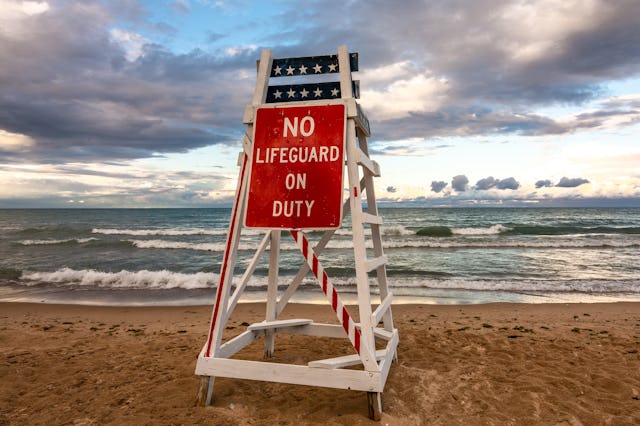Warning: There Will Be Way Fewer Lifeguards On Duty This Summer
Because of worker shortages and COVID-related training woes, pools and beaches are scrambling to find lifeguards.

Summer is all about having fun in the sun. But due to a nationwide lifeguard shortage, parents should be super aware that pools and beaches may have fewer lifeguards on duty this year — and that some areas might have limited hours of coverage or be closed altogether.
The reason for the shortage, like so many others right now, is layered. The general worker shortage has lots of businesses scrambling to find employees, and lifeguards are no different. At the same time, the COVID-19 pandemic closed pools and canceled classes, meaning that there are simply not enough people trained to be lifeguards in the first place.
Another issue? The declining birth rate in America means there are simply fewer teenagers to fill what used to be a popular summer job for high schoolers in many places.
“It’s the worst we’ve ever seen it,” Bernard J. Fisher II, director of health and safety at the American Lifeguard Association, told The New York Times. “If we don’t keep training new lifeguards all summer, it’s going to be a long time before we get out of this.”
In Milwaukee, the shores of Lake Michigan are going unguarded and many public pools are shuttered.
In Austin, only half of 750 needed lifeguard positions have been filled.
In New Orleans, only 5 city pools are open despite officials hiking wages.
In Cincinnati, only 8 or 23 public pools will open.
“We started really recruiting aggressively six... seven months ago. This has to be in 2021 as early as October and November and we have just not seen the number of returning pool lifeguards first and foremost and we have not been able to pick up new lifeguards,” Daniel Betts, head of the Recreation Commission in Cincinnati told local reporters.
All in all, one out of three pools and beaches nationwide will be affected by the shortage this season. In some cases, this means recreational areas will be closed, but in others, kids will be swimming at their own risk and parents will have to be more vigilant.
More: Pool Safety For Kids: Advice From A Lifeguard
Cities and local governments are paying more and offering cash bonuses to kids to sign up for lifeguard duty — others are offering lifeguard training for free. But many other businesses are also raising wages (that’s a good thing) and it’s hard for pools to stay competitive with better offers to teens from other summer jobs.
Water safety experts fear that the shortage could mean a rise in drownings and near-drownings, both because fewer beaches will be covered and because kids who can’t go to the local pool will find more dangerous places to swim.
“It’s hard to watch,” Aaron Levine, an aquatics supervisor in Austin, told The New York Times. “It’s 100 degrees in Texas. If they don’t come to their lifeguarded neighborhood pool, they will find a body of water somewhere.”
This article was originally published on